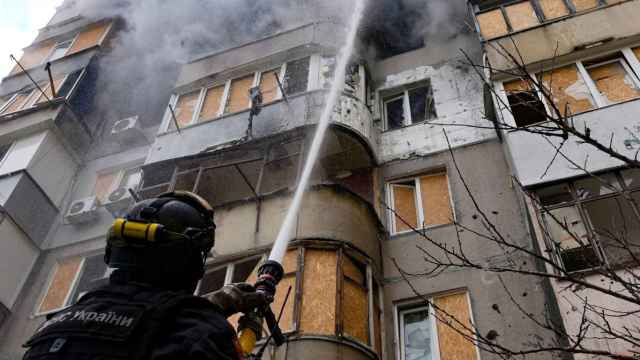ZURICH — FIFA's independent ethics committee is probing "many" cases of suspected corruption, is accelerating its investigations and expects life bans for all but minor offenses, according to a source familiar with the matter.
Investigators are probing three main areas: cases related to the 2018 and 2022 World Cup bidding process, the distribution and use of development funds and match-fixing, which the source described as soccer's "big story."
Ethics investigators say the days when corruption offenders could expect to receive only three-month bans were gone, the source told Reuters.
"There are many more cases than people imagined and they are determined to pursue them, be prepared," the source said.
The investigations are separate from a Swiss probe into the 2018 and 2022 World Cup awards to Russia and Qatar, which deny any wrongdoing, and a U.S. investigation which has indicted 14 people, including former FIFA officials, on charges of money laundering and racketeering.
Unlike those two probes, FIFA's investigators do not have police powers.
Although suspected corruption among high-ranking officials has attracted the media spotlight and concerned sponsors, FIFA ethics investigators are believed to regard match-fixing as the biggest threat to the sport as well as the most difficult to combat.
"Match-fixing is the big story at the moment," said the source, adding that it was a crime that went beyond the boundaries of sport and needed collaboration from public authorities around the world.
Match-fixing is usually instigated by criminal gangs who bribe players or referees to manipulate a game and make thousands or millions of dollars by betting on the outcome.
Dozens of players have been banned around the world over the past few years
Life Bans
FIFA has been dogged by suspicions of corruption for years and several dozen officials have been sanctioned since 2010.
These included former presidential candidate Mohamed Bin Hammam, who was banned for life in a cash-for-votes scandal following a meeting in Port of Spain before the 2011 election.
However, many of the Caribbean officials involved in the scandal were given bans of a few months or a reprimand.
In response to the scandals, FIFA's ethics committee was reformed and divided into two chambers, one to carry out investigations and the other to hand out sanctions.
Even so, it still faces suggestions that it is toothless and that FIFA President Sepp Blatter exercises control from behind the scenes.
Blatter and the ethics committee vehemently deny this but FIFA statutes prevent the watchdog from naming those under investigation, even when the cases are well-known and have been widely reported.
Clearly frustrated by this, the ethics committee last month called for greater powers to publish details of its activities.
"Transparency should be accorded greater importance in the future when weighing up the protection of privacy against disclosure," Cornel Borbely, chairman of the investigatory chamber of the ethics committee, said last month.
He said current rules were "inconsistent with state criminal proceedings in Switzerland and Europe". His proposal was backed by Hans-Joachim Eckert, head of the judgment chamber, who is ultimately responsible for deciding on sanctions.
One case that attracted particular attraction was that of Harold Mayne-Nicholls, who led the teams which inspected bids to host the 2018 and 2022 World Cups, and the Chilean was banned for seven years in July.
Mayne-Nicholls said he would appeal and could not discuss the case.
FIFA did not give any details and the ban appeared severe compared with previous sanctions for officials who had been found guilty of serious offenses including bribery.
However, the source said the suspension should be considered as a sign that the ethics committee was getting tougher and that hindsight could give it a different perspective.
"Lifetime bans are now seen by the Court of Arbitration for Sport as the normal sanction for corruption and they consider that lesser penalties should only be handed out in relatively minor cases," the source said.
A Message from The Moscow Times:
Dear readers,
We are facing unprecedented challenges. Russia's Prosecutor General's Office has designated The Moscow Times as an "undesirable" organization, criminalizing our work and putting our staff at risk of prosecution. This follows our earlier unjust labeling as a "foreign agent."
These actions are direct attempts to silence independent journalism in Russia. The authorities claim our work "discredits the decisions of the Russian leadership." We see things differently: we strive to provide accurate, unbiased reporting on Russia.
We, the journalists of The Moscow Times, refuse to be silenced. But to continue our work, we need your help.
Your support, no matter how small, makes a world of difference. If you can, please support us monthly starting from just $2. It's quick to set up, and every contribution makes a significant impact.
By supporting The Moscow Times, you're defending open, independent journalism in the face of repression. Thank you for standing with us.
Remind me later.





